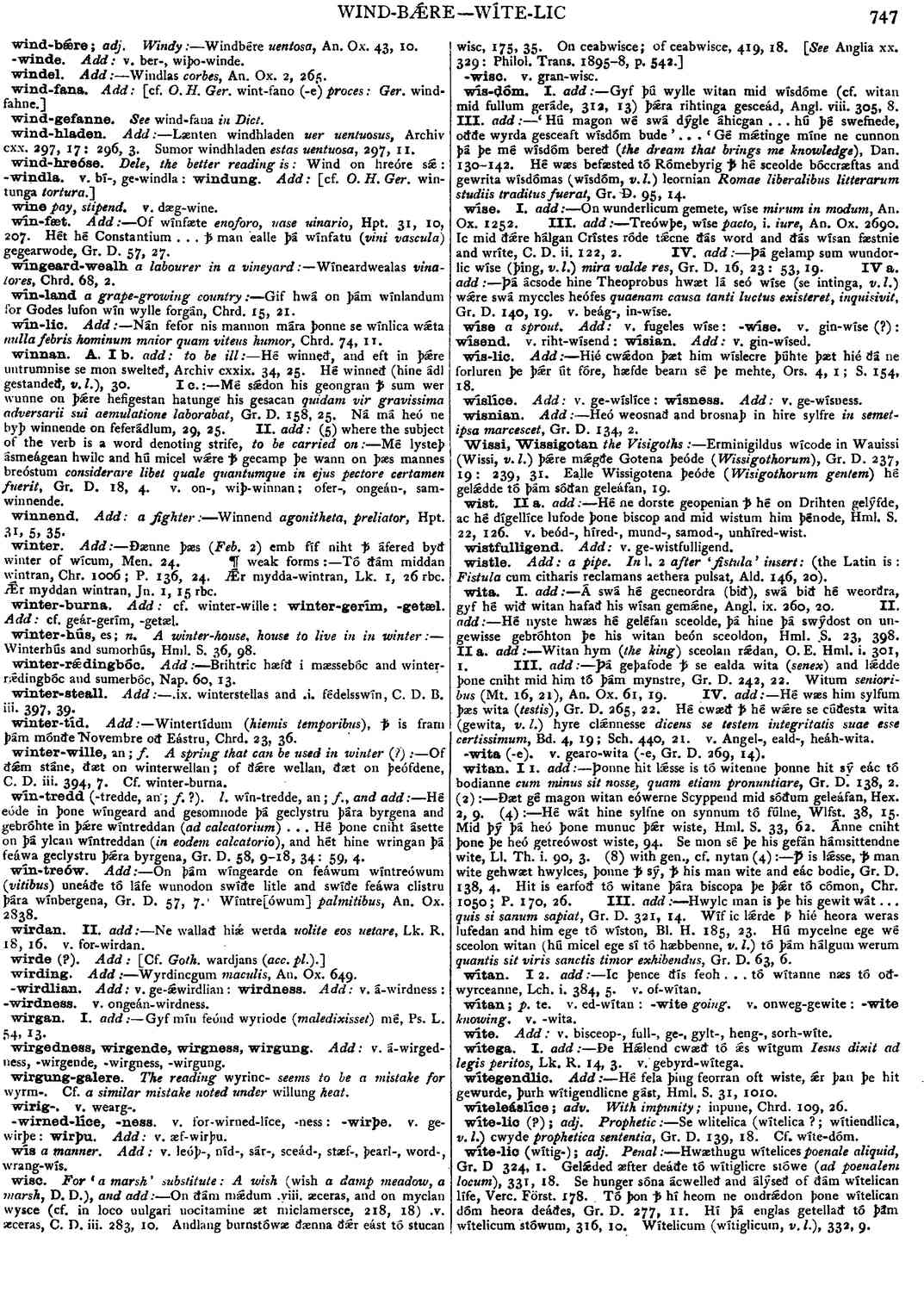witan
-
Þonne hit lǽsse is tó witenne þonne hit sý eác tó bodianne
cum minus sit nosse, quam etiam pronuntiare,
- Gr. D. 138, 2.
-
Ðæt gé magon witan eówerne Scyppend mid sóðum geleáfan,
- Hex. 2, 9.
-
Hé wát hine sylfne on synnum tó fúlne,
- Wlfst. 38, 15.
-
Mid þý þá heó þone munuc þǽr wiste,
- Hml. S. 33, 62.
- Ánne cniht þone þe heó getreówost wiste, 94.
-
Se mon sé þe his gefán hámsittendne wite,
- Ll. Th. i. 90, 3.
-
Ꝥ is lǽsse, ꝥ man wite gehwæt hwylces, þonne ꝥ sý, ꝥ his man wite and eác bodie,
- Gr. D. 138, 4.
-
Hit is earfoð tó witane þára biscopa þe þǽr tó cómon,
- Chr. 1050; P. 170, 26.
-
Hwylc man is þe his gewit wát. . .
quis si sanum sapiat,
- Gr. D. 321, 14.
-
Wíf ic lǽrde ꝥ hié heora weras lufedan and him ege tó wíston,
- Bl. H. 185, 23.
-
Hú mycelne ege wé sceolon witan (hú micel ege sí tó hæbbenne, v.l.) tó þám hálgum werum
quantis sit viris sanctis timor exhibendus,
- Gr. D. 63, 6.
Bosworth, Joseph. “witan.” In An Anglo-Saxon Dictionary Online, edited by Thomas Northcote Toller, Christ Sean, and Ondřej Tichy. Prague: Faculty of Arts, Charles University, 2014. https://bosworthtoller.com/60630.
Checked: 0